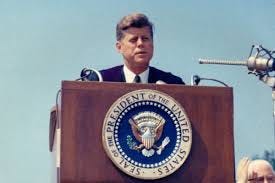I've spent the weekend grappling with the elusive challenge of speechwriting and failing spectacularly. Usually, when I'm floundering like this, I turn to Paul Richards, a man who’s forgotten more about speechwriting than most of us will ever know. But this weekend, rather than focusing on what to say, I’ve been pondering how you say it.
In my mind, I’ve written and rewritten the first chapter of the imaginary Dictionary of Speech Writing Techniques a hundred times. And where else would I start but with A for Alliteration? So, in a fit of procrastination and perhaps a touch of desperation, I’ve gone and written the whole chapter.
Alliteration—a noble device in the craft of rhetoric—is the repetition of initial consonant sounds. This tool is not just for the poets or the peculiar fellows who pen jingles for advertisements but also for those who stand upon podiums and wish to be remembered, or at least not forgotten too quickly. Alliteration is, after all, the workhorse of the wordsmith, a trick that is as old as language itself.
In Simpler Terms
Alliteration is that rewarding habit of starting several words with the same sound. It’s the kind of thing that makes you say, “Well, well, well, what have we here?” even when you know exactly what you have there. It’s taught to politicians on the first day of political school, right after the lesson on avoiding the issues but before the one on embracing ambiguity. If you’re ever in a bind, remember: come, see, and conquer, each with a consonant that connects.
Historical Context
Alliteration is the golden child of rhetoric. However, some might argue it’s more like a favourite uncle who shows up unannounced to weddings and funerals, delighting a few and annoying others. Shakespeare, that undisputed champion, was fond of it. Think “From forth the fatal loins of these two foes,” a line that rolls off the tongue with a tragi-comic elegance, as if fate itself were alliterating. And what about Dickens, the Dickens of “It was the best of times, it was the worst of times”? In A Tale of Two Cities, he deftly contrasts “The smoothest of tongues and the sharpest of guillotines,” where the sibilant “s” and the sharp “t” sounds cut the air. They cut, they slice, they sear into your consciousness.



Poet Gerard Manley Hopkins could bend the English language into shapes that hadn’t been seen before. Take The Windhover, where he writes, “I caught this morning morning’s minion, kingdom of daylight’s dauphin, dapple-dawn-drawn Falcon.” The repeated “m” and “d” sounds create a kind of musical chaos that only Hopkins could manage to conduct.
And then, there’s the comic book universe, where alliteration is the secret ingredient in every superhero’s name. Peter Parker, Bruce Banner, Clark Kent, they wouldn’t be half as memorable without those repeated initials. It’s the kind of thing that sticks in your mind, like cream cheese on a crusty cob or a particularly persistent politician.
Great Speeches
Example 1: Harold Wilson, Speech at the Labour Party Conference (1967)
In a world that is changing rapidly, we cannot afford to stand still. We must be ready to meet the challenges of tomorrow, equipped with the vision and resolve that have always defined our movement. We are redefining and we are rededicating our objectives. But one thing is clear: nothing will turn us from our purpose, nothing will distract us from our duty, nothing will separate us from our determination.
Our path forward is clear, and our resolve is stronger than ever. As we face the future, we do so with a renewed commitment to the principles that guide us and with the unshakable belief that together, we can achieve our goals.
Wilson, the optimist who always carries a raincoat, uses alliteration with phrases like “redefining and rededicating,” “duty,” and “determination.” The words march in unison, as if on a mission to convince the listener that everything is under control, even if it’s not. The passage also features a list of three—“nothing will turn us from our purpose, nothing will distract us from our duty, nothing will separate us from our determination”, which we’ll explore more in another chapter unless I’m distracted or otherwise deterred.
Example 2: John F. Kennedy “We Choose to Go to the Moon” Speech (1962)
We choose to go to the moon. We choose to go to the moon in this decade and do the other things, not because they are easy, but because they are hard, because that goal will serve to organize and measure the best of our energies and skills, because that challenge is one that we are willing to accept, one we are unwilling to postpone, and one which we intend to win.
Kennedy, always the golden boy with the silver tongue, wields alliteration like a seasoned swordsman. The repeated “w” sounds in “willing to accept,” “unwilling to postpone,” and “intend to win” add rhythm to the resolve, making it sound as if the very universe were conspiring to help him achieve his goal. It’s not just a speech; it’s a verbal symphony, and Kennedy is the maestro.
Example 3: Winston Churchill, First Speech as Prime Minister (1940)
I would say to the House, as I said to those who have joined the government: I have nothing to offer but blood, toil, tears and sweat.
We have before us an ordeal of the most grievous kind. We have before us many, many long months of struggle and of suffering. You ask, what is our policy? I will say: It is to wage war, by sea, land and air, with all our might and with all the strength that God can give us; to wage war against a monstrous tyranny, never surpassed in the dark and lamentable catalogue of human crime. That is our policy. You ask, what is our aim? I can answer in one word: victory. Victory at all costs, victory in spite of all terror, victory however long and hard the road may be; for without victory, there is no survival. Let that be realised; no survival for the British Empire, no survival for all that the British Empire has stood for, no survival for the urge and impulse of the ages, that mankind will move forward towards its goal.
Churchill, the bulldog of British resolve, knew how to use alliteration to punch up his points. “Blood, toil, tears, and sweat” is a quartet of sounds that feels as heavy as the burden it describes. This passage also showcases the tricolon in “sea, land and air” and the relentless repetition of epizeuxis with “victory,” making sure the word lingers in the air like the smoke from a battlefield.
The Effect of Alliteration
Alliteration isn’t just a bit of wordplay for the bored and the witty; it’s a tool that can transform a speech from a series of statements into a symphony of sounds. It adds rhythm, resonance, and a touch of the unforgettable. When politicians want their words to stick, they turn to alliteration because nothing says “remember this”, like the repetition of consonants, which echo in the mind.
Wilson’s alliteration imbues his speech with a steady resolve, while Churchill’s sharp consonants cut through the uncertainty of war with a clarity that borders on the prophetic. In the political arena, where speeches can mean the difference between victory and defeat, alliteration is the weapon of choice for those who know how to use it.
Practical Application
Alliteration is your ally if you find yourself in the unenviable position of writing a speech that must be remembered. It’s the sprinkle of seasoning that turns a bland dish into a spicy feast for the senses. Use it to make your key messages stick, but be careful not to overdo it—too much of a good thing can turn your speech into a tongue-twister exercise in frustration.
Choose your words wisely, aim for rhythm and resonance, and let alliteration do its magic. Whether you’re rallying the troops, persuading the populace, or just trying to make sure they remember your name, alliteration will help you leave your mark.
If I’m still in a speech-writing desert, next week’s chapters will be on anaphora, followed by antithesis and assonance.







Really enjoyed this read 👍
Fantastic - thankyou for sharing your writing.